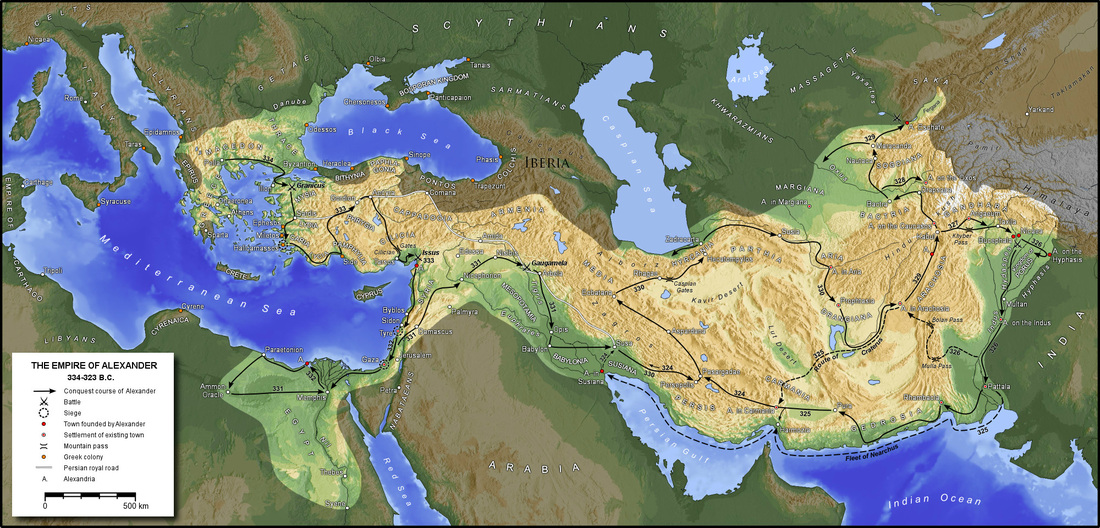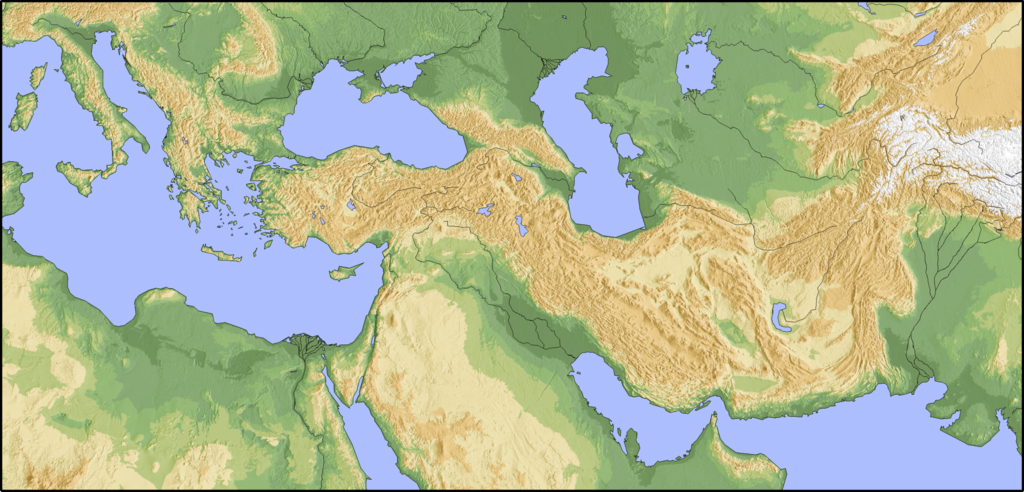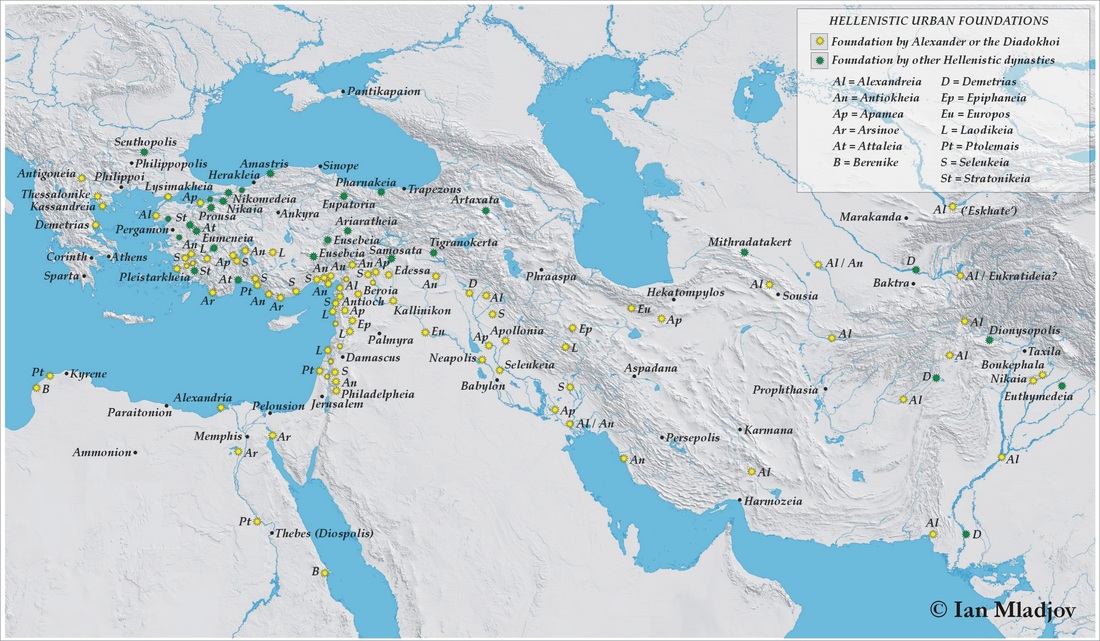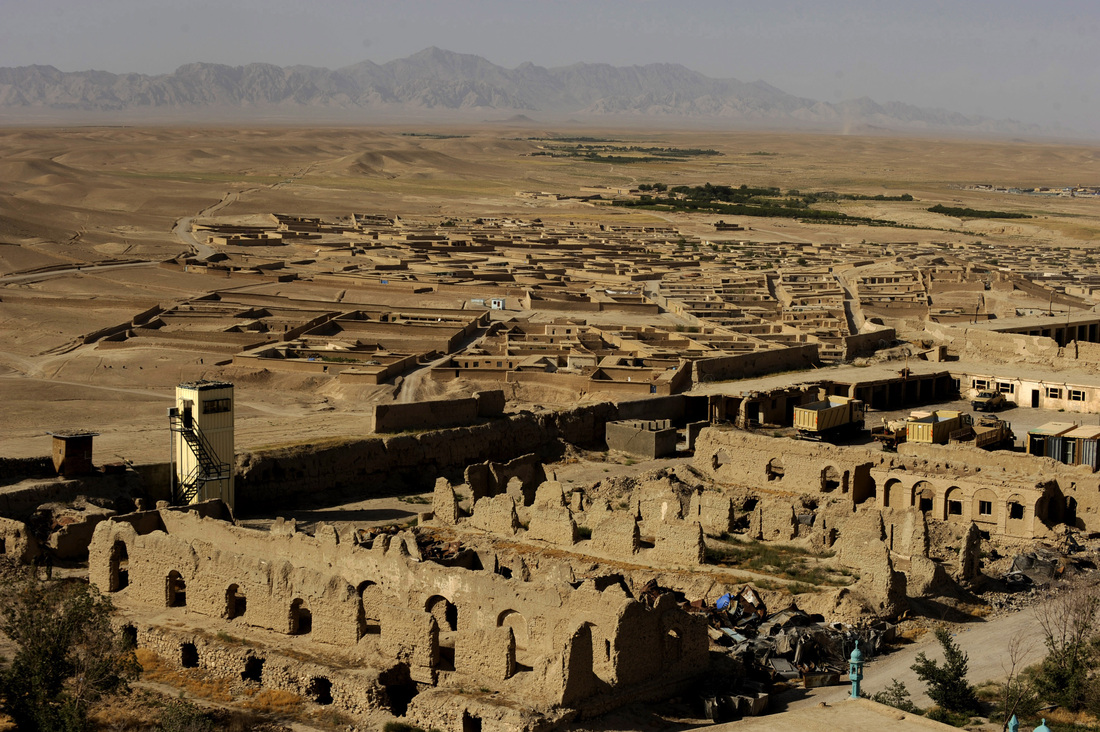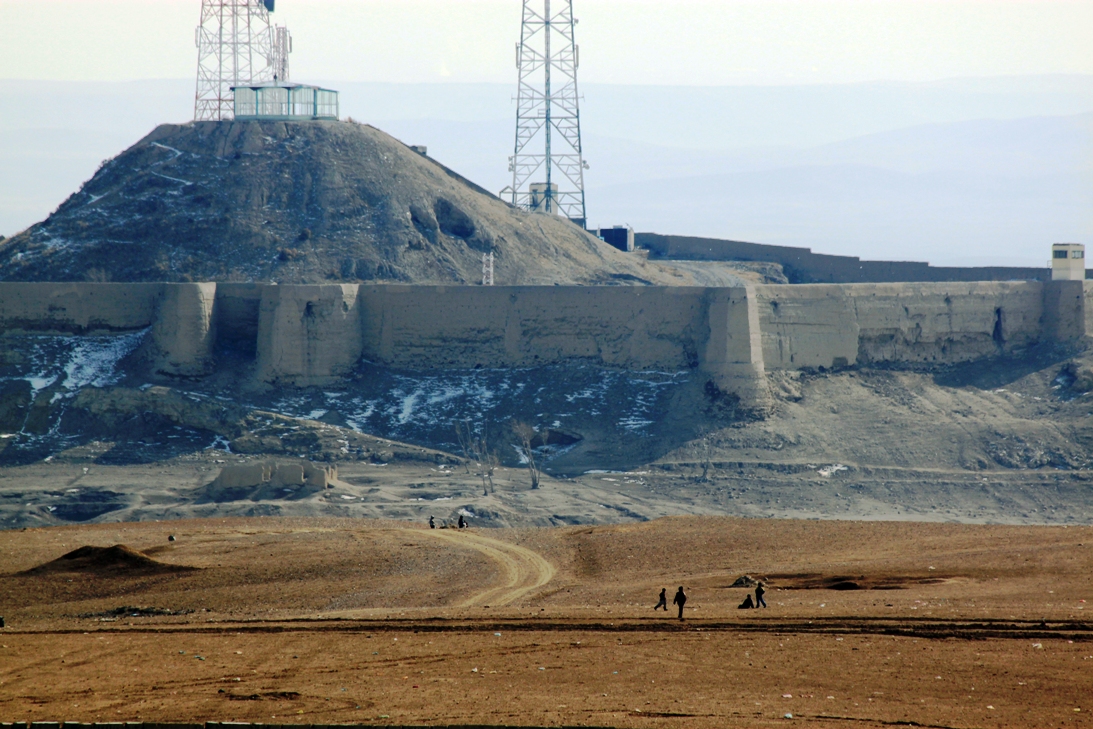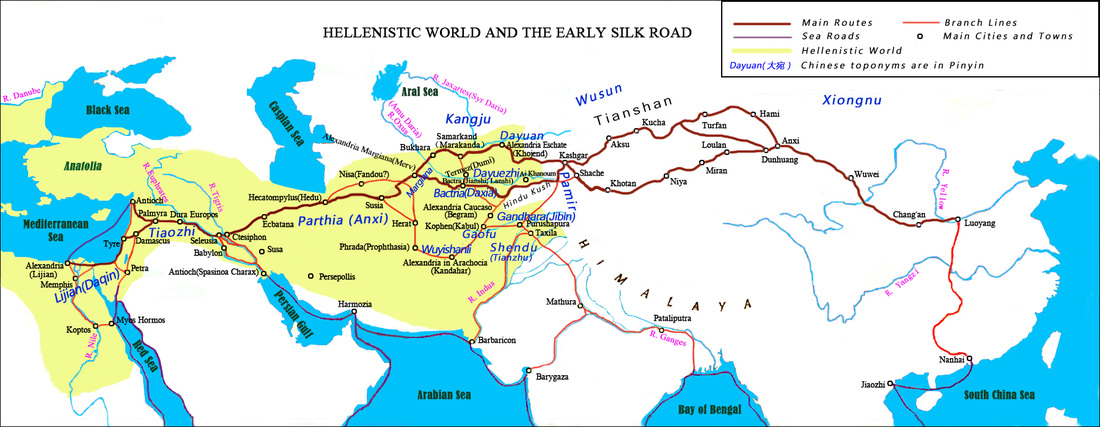Hellenistic World
From Hellenism to Hellenistic: The Greeks considered themselves as descendants of Helen of Troy. King Philip II of Macedon had a goal of uniting the Greek lands, and then conquering the territories of the Persian Empire. However, before he could accomplish these objectives, he was assassinated. His son and heir, Alexander, adopted his father's plan, and he began a military campaign that would allow him and his Greco-Macedonian army to conquer the known world (at least known to the Greeks). Greek culture within the Aegean and Mediterranean littoral is referred to as Hellenism, and Greek culture that was exported beyond the boundaries of the Greek world is known as Hellenistic.
Two major long-lasting achievements of the Hellenistic Period:
Two major long-lasting achievements of the Hellenistic Period:
- The creation of a large, commercially interested state in the middle of Eurasia. This dramatically increased the flow of trade goods and the exchange of ideas across Afro-Eurasia. This laid the foundations for the 'Silk Roads.'
- Due to wealth that came from conquering the Persian Empire and the new trade contacts, Hellenistic states were extremely wealthy. Many of the Hellenistic rulers became interested in patronizing the culture and collection of knowledge. These storehouses of learning, libraries and museums, played a significant role in collecting, organizing, and distributing human knowledge.
Greece
|
Persia
|
Hellenistic
|
Image Source: Wikipedia
Hellenistic Cities
As Alexander's army conducted military operations throughout the Persian Empire, it is reported that they founded hundreds of cities along the way. While the combined army of Greeks and Macedonians did establish some cities (Alexandria of Egypt being the most famous), it is most likely that the majority of cities were simply older settlements that were given new Greek names. A few able-bodied soldiers would be left at settlements and fortifications to guard strategic locations. However, the major of Greeks and Macedonians were soldiers that had become too old, sick, or injured to further endure the struggles of a harsh military life. These men were placed as the new ruling class within these cities, and gradually, under their guidance, these cities would take on an increasingly 'Greek' feel.
Image Source: Courtesy of Ian Mladjov
|
I. Alexander's Lost World: On An Ancient Sea
|
II. Alexander's Lost World: Mother Of All Cities
|
|
III. Alexander's Lost World: Alexandria on the Oxus
|
IV. Alexander's Lost World: City of Moon Lady
|
|
V. Alexander's Lost World: Land of the Golden Fleece
|
VI. Alexander's Lost World: Source of Civilization
|
Storehouses of Knowledge: Libraries and Museums
Carl Sagan on the Library in Alexandria
|
In Search of History: Library at Alexandria
|
Ancient Mysteries: Library at Alexandria
|
Alexander's Legacy
Fortifications built by Alexander's army were placed at such strategic locations they are currently be used by military forces in Afghanistan. (Images below courtesy of the US Air Force and NATO).
Indo-Greek Fusion: Hellenistic Art + Buddhist Religious Tradition
http://www.religionfacts.com/buddhism/history/hellenistic.htm
http://en.wikipedia.org/wiki/History_of_Buddhism
http://en.wikipedia.org/wiki/Greco-Buddhism
http://en.wikipedia.org/wiki/Greco-Buddhist_art
http://en.wikipedia.org/wiki/History_of_Buddhism
http://en.wikipedia.org/wiki/Greco-Buddhism
http://en.wikipedia.org/wiki/Greco-Buddhist_art
Hellenistic World and the Early Silk Road
Source: With permission from the Center for Hellenic Studies (Harvard)-- "Hellenistic Information in China"
